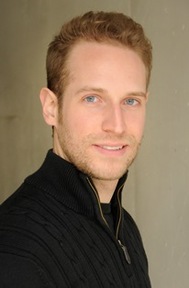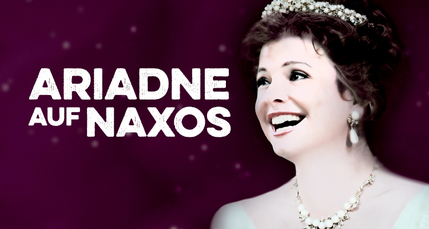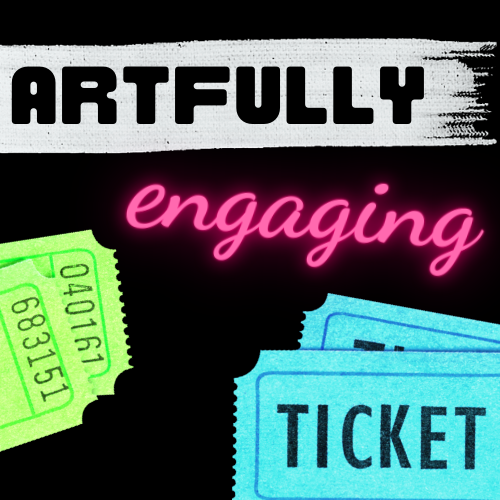|
Baritone Andrew Lovato plays one of opera’s most popular archetypes, Harlequin, in the Minnesota Opera's production of the comedic opera Ariadne auf Naxos. Last night I attended the social media preview night at The Ordway to see Andrew perform. In the following interview Andrew shares some insights into the rehearsal process of Ariadne, a sneak peek into this show-within-a-show opera, and his love for Minneapolis.
If you could describe Ariadne auf Naxos in three words, what would they be?
Andrew: Loud, thrilling, freaking-amazing. |
Andrew: I would say the rehearsal process has been a pretty standard one, though we managed to stage a lot of the show very quickly, which left us a lot of time to play and develop our characters and character relationships. Sometimes these things take time to flesh out, you never really know who a character is fully until you really develop the onstage relationships through repetition. Little by little the character grows into what you eventually see in the performance. Characters can even evolve from performance to performance as well, production to production. It’s really what’s beautiful about this art form: every performer brings something different to the work they do and the characters they build.
The rehearsal process initially, for me, was very scary; comedy and that type of energy, especially that of the commedia dell'arte, really takes a lot of confidence and freedom to move and play and can leave one feeling very vulnerable. I feel overwhelmingly lucky to be working with such fantastic and good-hearted people in this production—talented people and wonderful colleagues. One feels safe to explore, make mistakes, try new things and the whole really benefits from this environment.
Andrew: I freaking love Minneapolis! There is such a wonderful charm to the cities and my neighborhood specifically, northeast Minneapolis. My current project is to make it to every restaurant and bar in Northeast; I am about 30 deep so far. I think I can make it by the end of the opera season in May! I am also obsessed with the Mia. It is such a fantastic collection and I’ll go there often when I don’t have an afternoon call.
I think anywhere where you can find significant personal growth is where you will also find significant artistic growth as well. And this is a magical place indeed.
What is a typical day like for you as an opera singer?
Andrew: There is a lot of work to be done and always areas you can improve on. We generally get our rehearsal schedules a day in advance, so by about 7pm I will know for the next day what stagings/musical rehearsals/coachings I’m called to. Between what I am called to I try to find time to practice upcoming rep (repertoire), solo rep, and just make sure the voice is working well. A day’s schedule can range from just an hour call to being called from 10am to 10pm. Long days are fun though; you get to hang out with your colleagues, have lunch/dinner together, etc. I am trying to learn German at the moment so I put in about an hour a day of German grammar exercises. I work out in the evenings after rehearsal, then head home and go fast asleep.
I suppose I can expand a bit more on the psychology of the day-to-day of a singer as well. Self-doubt is a massive thing to deal with. An essential fact of singing is that the person singing hears their own voice entirely differently than the outside world does. This means an incredible amount of trust in your own intuition, but also the ears of your colleagues. Technique, musicianship, expression, all these things are essentially translators to the outside world, and whether they are translating or not and how they translate your intention is a big mystery, and a challenging one to master. It is a subjective art form and everyone has their own taste, which is completely fair. Identity is so important as a performer and interpreter, but also outside the professional realm. Both feed on each other in both positive and negative ways. An artist is essentially limited by the level of their character. I bring this up because these are day-to-day issues that one has to confront and deal with.
Can you tell us a little about your character Harlequin?
Andrew: This kind of has to be a particularly convoluted answer because of the nature of the role and the opera. The show resembles real life in a way and the real-time challenges of a live medium. So the story is basically that the richest man (in this production the richest man in the Twin Cities, you will notice Brighella in the prologue wearing, very subtly, a Minnesota Wild t-shirt) who has brought together two groups of performers. One group is to perform an opera seria and the other group is to perform a commedia dell’arte. Due to the patron’s dinner running a bit long both groups will now have to combine their shows and perform together (this is act II, the “Opera”) so as to not interrupt the sharply scheduled fireworks at the end of the show scheduled at 9pm. So basically there are two versions of each character.
Harlequin in the prologue is essentially himself, he is a performer, very simply, arriving at a “gig.” The first entrance of the commedia troupe has us basically overrunning the beautiful banquet of food and devouring everything in sight. This is not a novel thing to a working musician and I have personally done this many times, so there is much “inspiration” to draw on.
I model a lot of Harlequin, especially prologue Harlequin, on musical theater performers I have encountered. There is an energy about them and a full-bodied rebelliousness I really like, and Harlequin abounds in irreverence and obnoxiousness. Now the opera portion (act II) is a blend of both Harlequin as a person and the stock character that Harlequin plays. “Harlequin” in the prologue could be named Andrew or Steve who then go on to play Harlequin in the opera.
Now one of the thrills of this opera is that essentially these two groups of performers are improvising on the spot this combination of shows they were forced to perform. So you will see the brash and irreverent prologue Harlequin occasionally come through as he is trying to figure out how his stock character “Harlequin” fits into this brand new combined show. Harlequin as a stock character is light-hearted, lustful, a trickster and with somewhat the advantage that the commedia dell’arte plot always has him getting the girl.
Ticket Information: Ariadne auf Naxos
September 26-October 4
|
The Minnesota Opera
Ariadne Auf Naxos Music composed by Richard Strauss Libretto by Hugo Von Hofmannsthal Sung in German with English supertitles projected above the stage. Tickets: $25-$200
Ordway Music Theater
345 Washington Street Saint Paul, MN 55102 |



 RSS Feed
RSS Feed

